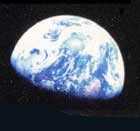|
Mistake on page 493
The Intergovernmental Panel on Climate Change was set up by the
United Nations in 1988 to evaluate research done around the world,
mainly using peer-reviewed articles in the scientific literature,
and from 1990 onward it has published five massive reports, the
latest in September 2013, and many supplementary documents.
But it's all nonsense! It includes a mistake.
On page 493 of the 976 pages of the second
of the four volumes (totaling more than 3000 pages) of the IPCC's
Fourth Assessment Report, 2007, there is an estimate that Himalayan
glaciers are melting fast enough to disappear by 2035. This estimate,
based on information from the World Wildlife Fund about difficult
measurements of these debris-strewn glaciers, was soon retracted,
by the IPCC and by the WWF. It had been caught by Professor Graham
Cogley of Trent University in Ontario, who
said: "The reality in the Himalayas is bad enough without exaggerating
it. The glaciers are losing mass and we are fairly sure they are
losing mass faster now than a few years ago. We also know that the
Himalayan glacier water could become a non-renewable resource."
The mis-estimate was seized on by global-heating
deniers and labeled "Glaciergate" — as if it will be fine for
the glaciers to disappear and the Ganges, Mekong, and Yangtze to
run dry a few decades later.
And there is at least one other mistake:
the percentage of the Netherlands below sea-level was said to be
55; this figure, which had been provided by the Dutch government,
should have been 26, as the IPCC and the Dutch government soon stated.
And there have been mistakes in the opposite
direction. IPCC reports have given estimates for the speed of disappearance
of Greenland and Antarctic glaciers and the Arctic ice cap, and
the rise of sea levels, which are proving to be too low.
Deniers avoid mentioning this.
In many thousand pages of carefully detailed
science, it would be surprising if there were not a mistake. To
say that it invalidates the whole and shows that global heating
is not happening is like saying a car won't run because someone
left a speck of dirt on the right rear window. Or, to use another's
metaphor (Luke 6:42): "Hypocrite, first remove the beam from your
own eye, and then you will see clearly to remove the speck from
your brother's eye."
return
|

